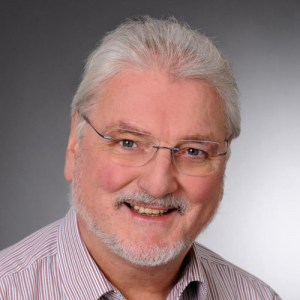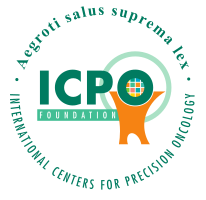Prof. Richard P. Baum

Professor Richard P. Baum is the President of the International Centers for Precision Oncology (ICPO) Academy, Board member of the ICPO and Consultant of the Advanced Center for Radiomolecular Precision Oncology (RPO) at Curanosticum Wiesbaden-Frankfurt, Germany.
For 22 years, until end of 2019, he was Chairman of the Center for Molecular Radiotherapy and Molecular Imaging at Zentralklinik Bad Berka. Prof. Baum is a clinician scientist, who has been involved in the use of radiolabeled monoclonal antibodies for imaging and therapy in the 1980s, in the introduction of Peptide Receptor Radionuclide Therapy (PRRT) for Neuroendocrine Tumors (NET) since 1997 -when he performed the first PRRT in Germany at Frankfurt University Medical Center, where he became Professor of Nuclear Medicine in 1989. Initially, 90Y-labeled somatostatin analogues were applied for NET therapy, followed by 177Lu-PRRT, and a combination thereof; currently also 225Ac-PRRT is in clinical use.
Over the past 25 years, he and his team have treated over 2000 NET patients from all over the world with more than 7000 PRRT applications. In 2013, he administered the word wide first 177Lu-PSMA radioligand therapy (PSMA) to a hormone-refractory patient with metastatic prostate cancer (mCRPC), and later on pioneered the use of a combination of 177Lu and 225Ac-PSMA (TANDEM-PRLT) for the treatment of patients with mCRPC. He currently has clinical experience with over 1,000 radioligand treatments of patients with metastatic prostate cancer.
In October 2019 he and his team performed the worldwide first Peptide-targeted Radiotherapy (PTRT) using 177Lu-FAP (fibroblast activation protein) and currently he is exploring TANDEM PTRT with 225Ac+ 90Y or +177Lu FAP (peptide).
He was honored by many prizes such as the Mallinckrodt Award in 1990, the GLORINET Award in 2014 (NET Patients Support Group in Germany), and the Saul Hertz Award in 2019 by the SNMMI (one of the most prestigious life time awards in the field of nuclear medicine therapy).
Currently, Richard P. Baum holds several guest and associate professorships across the continents (e.g., at Michigan State University in the U.S. and at the Peking University Cancer Hospital in China). He is one of the fathers and an avid supporter of the THERANOSTICS concept as he organized the first Theranostics World Congress in 2011 (followed by meanwhile 5 others in India, USA, Australia and South Korea)- and the use thereof in Personalized Medicine for Radiomolecular Precision Oncology – term he created and prefers to use instead of Nuclear Oncology.
Among others, his clinical research work includes also genetic profiling of tumors, cancer screening by combining liquid biopsies and PET/CT, the development and assessment of metabolic and molecular treatment response criteria, clinical research into new software tools for automated images analysis as well as molecular radiation treatment planning and dosimetry before and after radioligand therapy.

